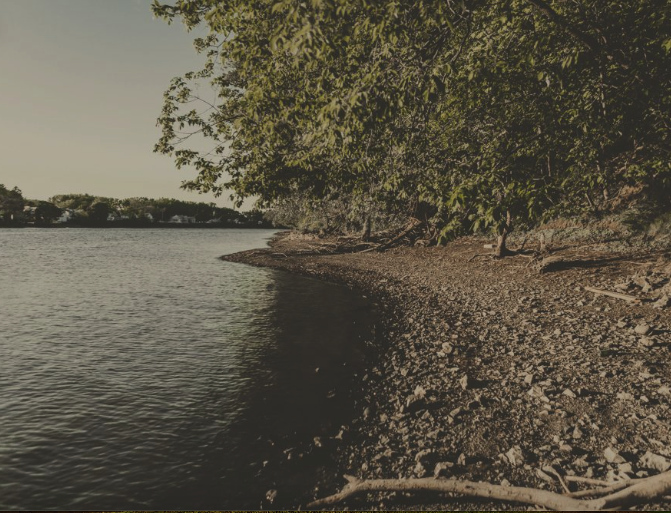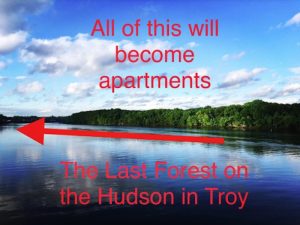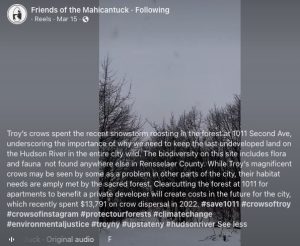
Friends of the Mahicantuck (FOTM) works to save from development the last waterfront forest in Troy, a culturally significant site for the Mahican Indigenous Peoples of the Mahicantuck River Valley, now called the Hudson River Valley. The Sacred Forest, as it’s known, is in a designated Environmental Justice Area and low-income community — one threatened with displacement and loss of river access and important greenspace. The NY-based nonprofit is fighting rezoning which could lead to the destruction of this land and its historical artifacts, dating back to 1500-3000 BCE. Their mission is twofold: finding a more suitable location for a proposed development while establishing a historical nature preserve and park. They aim to empower the community, preserve the land, optimize open spaces, and facilitate a cost-effective relocation for the developer. With support from 22 advocacy partners, they conduct research, manage campaigns, and organize public hearings, rallying community members and experts to ensure the protection of this invaluable site for future generations.

Friends of the Mahicantuck fight a zoning change that would allow development of a National Register Eligible Indigenous site and the last wild land on the Hudson in Troy.
Named after the Algonquin word Muhheakantuck, “river that flows both ways” for the Hudson River, FOTM is a broad community coalition dedicated to protecting and advocating for Indigenous rights, environmental justice, and ecologically sound land-use. Since 2020, the small volunteer organization has collaborated with many groups, including the Schaghticoke First Nations, to empower local voices through advocacy and training. They work to protect the land and fight the rezoning request necessary for a development to move forward — something that they see as a “clear case of spot zoning.” The group also urges the city to actively work with the developer on a better-suited alternate site at one of the many abandoned buildings and lots in direct proximity to the land they seek to protect. “People are now excited in the community, getting involved in zoning issues, permitting, and a 5,000-year-old Indian site. They are realizing that they can make a change. They have a right to self-sufficiency and self-determination,” co-founder Leo Bachinger said.

Roosting crows face loss of habitat if the proposed development is permitted on the banks of the Hudson River in Troy.